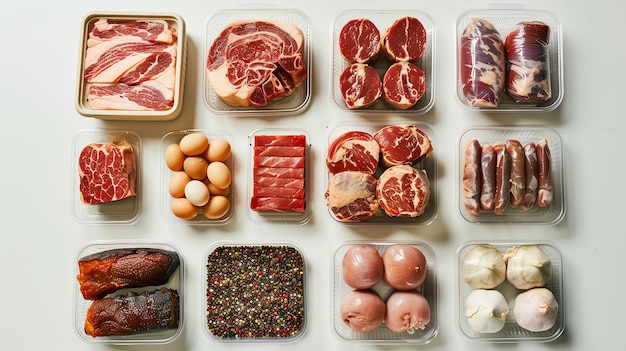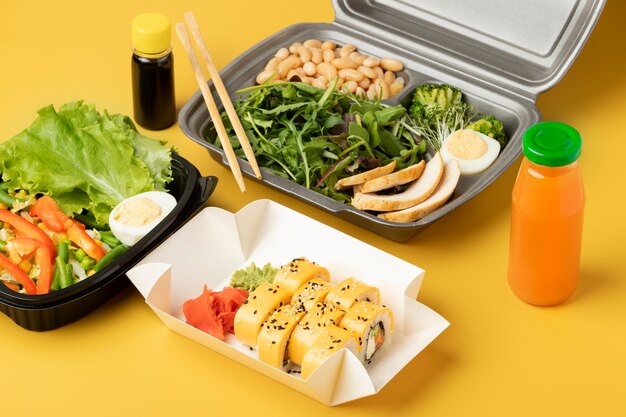Importance
A dynamic checkweigher builds a layer of confidence between producers and consumers by guaranteeing adherence to quality requirements during the production phase. They are an essential part of every significant packaging line. Manufacturing companies must adhere to the product weight specified on the label. If businesses don't, there may be a loss of brand value and several regulatory ramifications.
Additionally, it is important for your company to avoid overfilling with costly raw materials. Changes and repackaging will also be required if the product package does not adhere to tolerances and wrappers. It may result in lost time and decreased packaging line productivity.
Finding irregularities on the packing lines may be a helpful first step in making sure the finished product is consistent. Additionally, checkweighers make sure that, at the conclusion of the manufacturing cycle, items with various packing stay intact. Checkweighers are helpful in the packaging and case packing processes in addition to the processing line.
.png)
Advantages of Using Checkweigher In Production Line
Meet Standard Requirements
For a business to sell goods at retail, compliance with industry norms is essential. Strict penalties may be applied, thus there are regulations that must be followed. The maker is required to make sure the product weighs the prescribed quantity if the product contains labels that specify the precise weight it should have. Each product's weight will be measured using a checkweigher, and those that don't meet the predetermined limit will be rejected. By doing this, you can be confident that your business is adhering to industry standards and avoid paying costly fines.
Improves accuracy and reduces waste.
Checkweighers provide precise and accurate weight readings. By keeping the product consistent, this technology may be used for less money. Because checkweighers will accept any product that weighs more than the allowed amount, waste is decreased. Maintaining the precise weight that things should have will safeguard funds. Because operations do not need to be repeated if exact weights are being generated, these devices will also save money and time. If a corporation ensures that its items are not over-packed, it may save a significant amount of money.
Guarantee Product Quality
An essential component of product quality control is maintaining the items' weight consistency. Accurate and quick measurements that may be utilized for analysis are essential in production. Operators will be able to assess the items' quality with the use of this information. For operations to run smoothly and for final goods to meet expectations, homogeneous products are essential.
Analyze and measure productivity.
Checkweighers are equipped with technologies that may yield useful information and data for analysis, which can enhance workflow and boost output. An operator's output may be monitored by management, who was assigned to measure, how long it took, and when they started and ended. Knowing this information may help determine whether things are operating as they should and whether employees are performing their jobs appropriately.
Data provided by Checkweighers can improve management and enhance processes.
The facility's management can inspect every facet of the production process thanks to checkweighers. When plants weigh components, follow a formula, and weigh the finished product, quality control is crucial. Data from checkweighers will demonstrate whether procedures are operating efficiently and what needs to be changed. Products that exhibit inconsistent performance are likely indicative of malfunctioning machinery. Time and money will be saved since errors are clearly detectable.
What Types of Food Products Can Be Inspected Using Food Checkweighers?
Packaged Goods
In theory, all of the packaged goods within a product line should weigh approximately the same amount, and that weight should match the weight displayed on the package. Checkweighers verify the accuracy of these weight labels.
.png)
Meat and Poultry
If you sell meat and poultry by the package instead of by the ounce, food checkweighers ensure that the weight reading on the package matches the weight of the cuts of meat inside.

Dairy Products
This technology can help with quality control for cheeses and other non-liquid dairy products that you package by weight instead of by volume. They can also identify weight discrepancies in items that are the same volume, like gallons of milk, to identify potential quality concerns.

Ready-to-Eat Meals
Ready-to-eat meals should meet uniform weight standards to ensure that every packaged meal contains the exact same amount of food and reflects the weight on the label. Food checkweighers verify the weight of the package within your production line.

Confectionery Items
Packaged desserts need to match the weight on the label for compliance guidelines and to ensure the accuracy of nutritional information.

What is the cause of inaccuracy
Weighing goods that could not be uniform in size and shape could have an impact on the checkweigher's measurement accuracy. A weight measurement inaccuracy may result from a product that is unsteady on the conveyor line and vibrates or shifts as it passes through the checkweigher.
Product characteristics affecting weighing precision can include:
-
Product density variations
-
Shape of products
-
Size of products
-
Stability of product shape
-
Unusual packaging shapes and sizes
-
Surface texture of products and packaging
Make sure the equipment you choose is capable of handling the qualities of the goods you run across the conveyor. Certain machines are more effective when the product—like a packed liquid—has a consistency that can change as it is being moved. Some possess characteristics that enable the use of tall bottles, which might not be entirely stable when in motion.
Additionally, make sure the equipment you choose can work with your production system by paying attention to the conveyor belt specifications.








